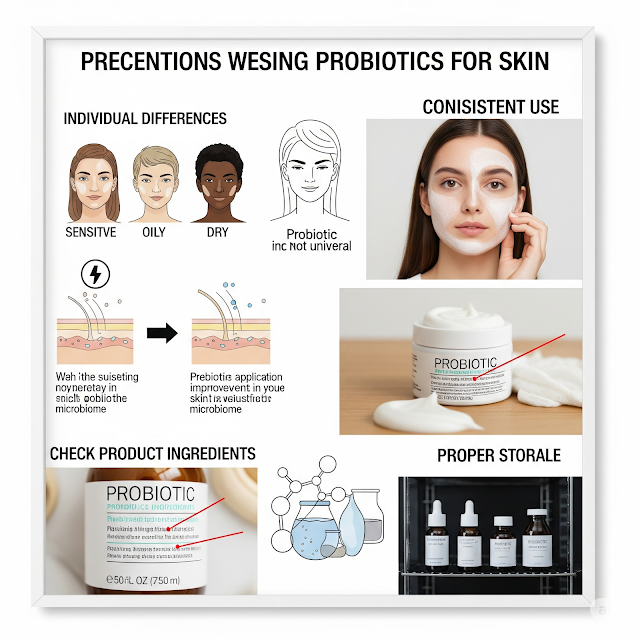Table of Contents
- What is the Skin Microbiome?
- Why Probiotics are Good for Skin
- How to Use Probiotics for Skin
- Precautions When Using Probiotics
- Find Healthy Skin Balance with Probiotics!
- Related Posts
1. What is the Skin Microbiome?
The skin microbiome refers to the complex ecosystem of billions of beneficial and harmful microorganisms residing on the skin's surface. This microbial balance plays a decisive role in skin health, including barrier function, immune response, and oil-water balance. An imbalance can lead to various skin issues like breakouts, dryness, and sensitivity.
2. Why Probiotics are Good for Skin
Probiotics help create a healthy skin environment by balancing the skin microbiome.
- Strengthening Skin Barrier: They promote the growth of beneficial bacteria and fortify the skin barrier, protecting it from external aggressors.
- Suppressing Harmful Bacteria: They reduce the activity of harmful bacteria and alleviate skin inflammatory responses, minimizing breakouts.
- Soothing and Moisturizing Effects: They calm redness and irritation, and regulate oil-water balance to keep skin hydrated.
- Boosting Skin Immunity: They enhance the skin's natural defense mechanisms, helping to maintain a healthy skin condition.
3. How to Use Probiotics for Skin
You can incorporate probiotics into your skincare routine in various ways.
- Probiotic Skincare Products: Consistently use toners, serums, or creams that contain probiotic or prebiotic ingredients.
- Consuming Fermented Foods: Eating probiotic-rich foods like yogurt, kimchi, and doenjang can improve gut health, which positively impacts skin.
4. Precautions When Using Probiotics
Here are some tips for safe and effective probiotic use.
- Individual Differences: Not all products guarantee the same effect on every skin type, so finding what works for your skin is crucial.
- Consistent Use: Consistent, long-term use is more effective for maintaining skin microbiome balance than short-term applications.
- Check Ingredients: Always check product ingredients if you have specific allergies.
- Storage: Probiotic ingredients can be sensitive to heat and light, so follow recommended storage guidelines.
5. Find Healthy Skin Balance with Probiotics!
Experience healthier, more comfortable skin by balancing the microscopic world within your skin with probiotic care. Do you have any further questions about probiotics?



